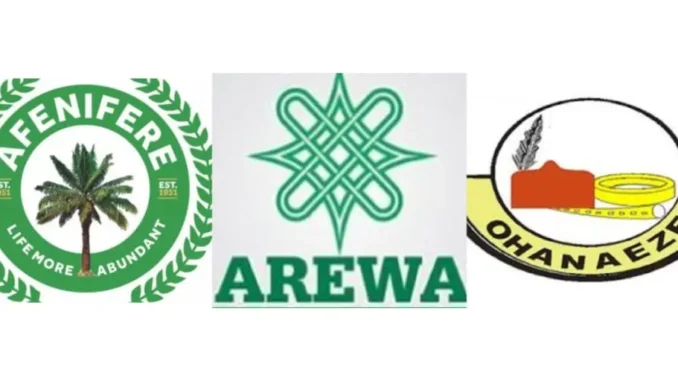
By Divine Sam
The ongoing debate surrounding President Bola Tinubu’s controversial Tax Reform Bills has sparked significant division across Nigeria, with notable socio-cultural groups expressing divergent opinions.
Northern Stakeholders (Arewa Youths)
The Arewa Youths Forum (AYF) has raised concerns about the fairness and impact of the proposed tax reforms, particularly in the Northern region. They argue that the North has historically received fewer benefits from national resources despite contributing significantly to the economy, especially through agriculture. AYF fears that the new tax reforms could disproportionately burden the North, especially the informal sector, which is predominant in the region. The lack of adequate infrastructure and public services in the North further fuels their skepticism. AYF also expressed concerns about the government’s transparency in utilizing tax revenue effectively.
Southern Stakeholders (Ohanaeze and Afenifere)
In contrast, Southern organizations like Ohanaeze Ndigbo and Afenifere have expressed support for the tax reforms. Ohanaeze, in particular, sees the reforms as an opportunity for economic revitalization, especially for small and medium enterprises (SMEs) that are a backbone of the Igbo economy. They believe that the reforms will address issues like double taxation and foster a fairer business environment. Afenifere also supports the proposed changes, arguing that the derivation principle for VAT distribution, which some Northern groups oppose, will benefit all states, not just those in the South. They assert that every state has the potential to maximize benefits from VAT through local consumption and services.
Overall Implications
The debate centers on the fairness of the VAT distribution and the potential economic impact on different regions. While Southern groups back the reforms, seeing them as an avenue for equitable development and economic growth, Northern groups express concerns about the potential adverse effects on their economy, especially without corresponding improvements in infrastructure and services. The outcome of this debate could have long-term implications for Nigeria’s fiscal and political landscape.